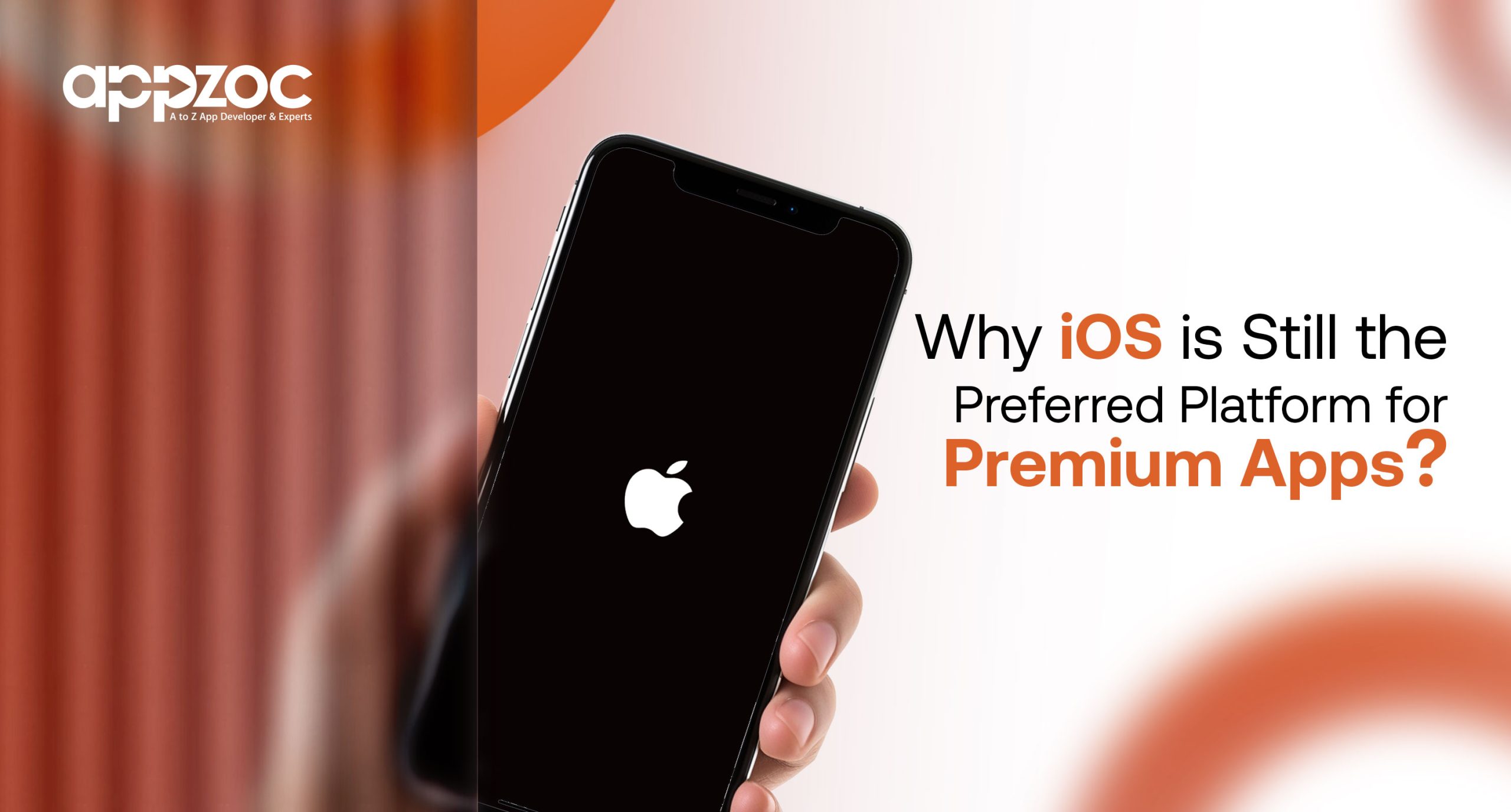
Flutter
Make the most of this cutting-edge technology by developing apps quickly! Our Flutter solutions have amazing features that can be used to create sleek, high-performance apps that can scale seamlessly across platforms.

With the expanding nature of technology, the use of mobile applications is growing. As the popularity of mobile applications increases, the most common question that arises is which operating system to choose. Choosing Android is the most common choice, but iOS has its advantages, making it confusing for businesses and developers.
Despite its widespread adoption of Android devices globally, iOS remains the preferred platform among developers who aim to create high-quality, feature-rich applications that cater to users with high expectations. In this blog, we will explore why iOS remains a preferred choice for premium mobile applications. What makes it such a compelling platform for both developers and users?
iOS is well known for its incredible performance and most innovative functionality, which highlights and appeals to the users. To all market visionaries, iOS app development is a highly profitable business, driven by a growing demand. A proper feature and execution at the right time is very important for the flourishing of the business.
In the booming technology sector, having a business app is essential for a growing business organisation. As the trend of mobile phones has become increasingly popular, Android and iOS are the two platforms that are commonly preferred and dominate the global market. Both iOS and Android have their advantages; however, iOS has its qualities that are of higher priority among developers and the business sector.
Let’s look at the Pros and Cons of iOS
Pros
Increased Revenue potential
Compared to the Android app, iOS users are most likely to spend more on the applications. This higher spending propensity often translates to delivering a greater potential to the users, especially for paid applications or in-app subscriptions.
Quality user experience
A quality user experience, with its seamless and intuitive design, attracts users, making them enjoy the experience with ease.
Consistent app performance
iOS has a unique operating system, unlike Android which has a wide variety of devices and OS versions. iOS versions are relatively uniform with fewer variations in screen sizes, resolutions and OS versions. This uniformity in the iOS simplifies the development and testing giving a consistent app performance and compatibility.
Adoption of modern tech
Apple leads the industry by adopting new features in advanced technology. Features such as ARKit, machine learning (core ML), etc, integrating these features, iOS has early access to these features, thus developing cutting-edge solutions.
Secured platforms
iOS is known for its high security and user privacy. iOS’s stringent app review process, robust security features, and privacy-focused initiatives inspire user trust and confidence in iOS apps.
Cons
Limited market share
iOS users tend to share more on the apps, thus delivering an overall market share of iOS devices that is smaller compared to Android. As iOS has a very small audience to target, and thus, there is a limited market share.
Fixed App Store guidelines
Apple enforces strict guidelines for review and feedback on the App Store. Applications should follow iOS rules for the content, functionality, design, etc. Not following or violating this rule may lead to app rejection or removal of the application from the app store.
Higher development costs
Developing an iOS app costs more compared to an Android app. This is mainly because of the hardware being developed for the iOS programming language and the strict adherence to Apple’s design and development standards.
Limited customisation
iOS offers less customization compared to Android. This consistency results in a cohesive user experience. This may reduce or limit the developers’ ability to create highly tailored or specialised apps that cater to specific user preferences.
Final thoughts
Although iOS is in strong competition with Android, this remains the most preferred platform for premium applications. With its best affluent user base, unified ecosystem, rigorous quality control, security and privacy features, and dominant developer support, it remains the most chosen one. iOS’s ability to deliver high-quality content ensures that it delivers a compelling environment, thus providing developers an assurance that their product reaches the right audience, which values that excellence. As the mobile world continues to evolve, the introduction of iOS to the mobile apps remains the gold standard for the premium app development industry in the coming years.